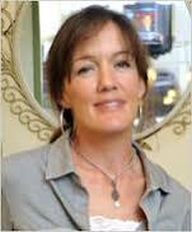- HOME
- INTRO TO THE FORUM
- USE AND MISUSE
- BADLY WRITTEN, BADLY SPOKEN
- GETTING
TO KNOW ENGLISH - PREPARING FOR ENGLISH PROFICIENCY TESTS
- GOING DEEPER INTO ENGLISH
- YOU ASKED ME THIS QUESTION
- ADVOCACIES
- EDUCATION AND TEACHING FORUM
- ADVICE AND DISSENT
- MY MEDIA ENGLISH WATCH
- STUDENTS' SOUNDING BOARD
- LANGUAGE HUMOR AT ITS FINEST
- THE LOUNGE
- NOTABLE WORKS BY OUR VERY OWN
- ESSAYS BY JOSE CARILLO
- A Unified Approach To The Proper Use Of Punctuation In English - II
- A Unified Approach To The Proper Use Of Punctuation In English - III
- Steeling Ourselves Against Common Subject-Verb Disagreement Pitfalls
- The Appropriate Way To Position Subordinate Clauses And Phrases
- Please Don’t Wish Me ‘More Power!’
- Let’s Say Goodbye To Those Irritating English Clichés
- ABOUT JOSE CARILLO
- READINGS ABOUT LANGUAGE
- TIME OUT FROM ENGLISH GRAMMAR
- NEWS AND COMMENTARY
- BOOKSHOP
- ARCHIVES
Click here to recommend us!
ADVICE AND DISSENT
This section features discussions on education, learning and teaching, and language with particular focus on English. The primary subjects to be taken up here are notable advocacies and contrary viewpoints in these disciplines and their allied fields. Our primary aim is to clarify matters and issues of importance to language and learning, provide intelligent and useful instruction, promote rational and critical thinking, and enhance the individual’s overall capacity for discernment.
When they decide to write, should writers stick to what they know?
Two notable novelists, Zoë Heller (Everything You Know; Notes on a Scandal; The Believers) and Mohsin Hamid (Moth Smoke; The Reluctant Fundamentalist; How to Get Filthy Rich in Rising Asia), respond to that hoary question in the Sunday Book Review of the March 25, 2014 issue of The New York Times.


ZOE HELLER MOHSIN HAMID
Heller’s position is that you should write what you really know—as opposed to a slick, bowdlerized version of what you know. She recalls though that she rejected that advice out of hand in grade school when her teacher gave it about a story she had written about an 18th-century highwayman. She had wrongly assumed that she was being asked to write exclusively about things that had actually happened to her.
“In fact,” Heller says in retrospect, “the injunction is only to know; the business of how you come by your knowledge is left quite open. You can mine your own life, yes. But you can also sympathetically observe other people’s experiences. You can read and research. And you can use your imagination. What good writers know about their subjects is usually drawn from some combination of these sources.”
On the other hand, Hamid acknowledges that it’s understandable for younger writers to be exhorted to write about what they know, considering that some of the best fiction ever written indeed seems to have followed that advice. But he believes that the DNA of fiction is, like human DNA, a double helix, a two-stranded beast: “One strand is born of what writers have experienced. The other is born of what writers wish to experience, of the impulse to write in order to know. Fiction comes into existence when these two strands are knitted together.”
Hamid continues: “In my own writing, I am aware of combining both strands. When asked, I usually say I don’t do much research for my fiction, I just live my life… But I also write about things I haven’t experienced. I’ve written from the point of view of a woman, of a global surveillance system, of a writer who is being beheaded. I write these things because I want to transcend my experiences.”
Read Zoë Heller’s and Moshin Hamid’s essays on writing in full in The New York Times now!
ANOTHER INTERESTING READING:

In “I Sold My Undergraduate Thesis to a Print Content Farm,” a cautionary article that came out in the March 23, 2014 issue of Slate.com, science reporter Joseph Stromberg tells about how he submitted his undergraduate thesis to an entity that billed itself online as a “top international publishing group,” then chronicles his subsequent dealings with what turned out to be the “shadowy, surreal” print equivalent of a content farm: a clearinghouse for texts that generate tiny amounts of revenue simply by turning up in search and appearing to be legitimate, published works. He reports that “the company obtained the rights to tens of thousands of theses, dissertations, and other unpublished works for essentially nothing; sold copies of them as books to unsuspecting online buyers (who assumed they were purchasing proofed, edited work); and kept essentially 100 percent of the proceeds.”
Read Joseph Stromberg’s “I Sold My Undergraduate Thesis to a Print Content Farm” in Slate.com now!
Click to read responses or post a response
View the complete list of postings in this section
(requires registration to view & post)





